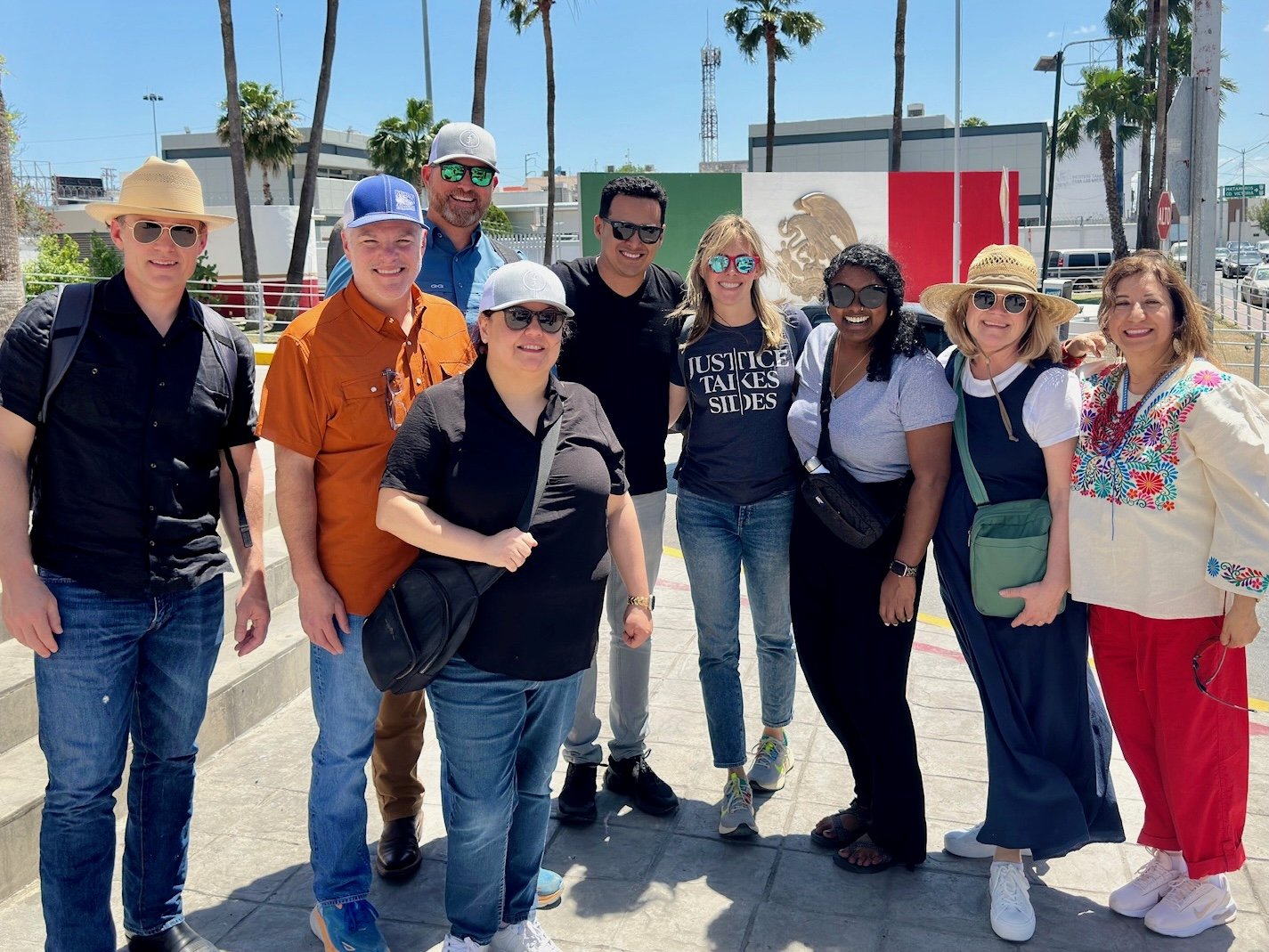Dios lo bendiga - a pastor's experience of a border trip
This is a re-publication of the letter that Pastor Ryon Price sent to the congregation of Broadway Baptist Church in Fort Worth, Texas, during his trip with Fellowship Southwest to the border.
Ryon Price, pastor of Broadway Baptist Church, left
Beloved Broadway,
Greetings and “Hola” from the Valley of Texas where I am spending several days this week visiting various immigrant ministry sites with Broadway ecumenical partners Baptist Joint Committee (BJC), Cooperative Baptist Fellowship, and our convening organization Fellowship Southwest.
Fellowship Southwest is a Baptist-rooted, ecumenical organization working for compassion and justice across the southwestern United States. It is doing tremendous work to help empower the churches and other non-governmental organizations working on the southern border, while also advocating for comprehensive U.S. immigration policy reform.
We spent most of yesterday and today working with the asylum ministry of Iglesia Bautista West Brownsville, as they welcomed immigrants from Haiti and Venezuela who recently crossed the border into the U.S. Tomorrow, we will take a tour of the Rio Grande then travel across the border to visit a Haitian emigrant church in Reynosa, Mexico. On Saturday morning, we will cross the border again to visit and assist refugees from Russia and Ukraine before we fly back home later that afternoon.
As a part of our experience, today we also met with Cooperative Baptist refugee advocacy specialist and immigration attorney Elket Rodriguez. He talked about the U.S. international and immigration policies which are both driving the massive number of emigrants leaving their home countries and also making their journey to the U.S. more difficult and dangerous.
“There are two walls,” Elket said. “One is the visible physical wall, but the other is the invisible wall of laws and policy.”
Elket implored us as faith leaders on the trip to report back to our communities what we are witnessing on the trip and try to “dispel the myth” that anywhere near the majority of people crossing our southern border are dangerous. They are desperate, he said, but not dangerous.
The immigrants I have met and talked with have included a group of Haitian asylum seekers who waited 5 months in Mexico to make it to the United States, a group of unaccompanied boys who fled violence together in their home country of Honduras, and a truly amazing young woman and her sister who walked from Venezuela through the jungle of the Darien Gap of Panama with three children, one of which is paralyzed with a congenital disability. They slept on smalls scraps of carpet under tents for weeks on end as they travelled that difficult path.
Yet as dangerous as that walk through the jungle was, we were told the most harrowing part of their journey was through Mexico, where extortion, kidnapping, and rape are constant threats. Like so many other asylum seekers, they spent months in Mexico before finally gaining their appointment with U.S. Customs and Border Protection.
No one would travel such a long and dangerous distance if not compelled by the gravest of circumstances.
How humbled were I and the other faith leaders as the sisters invited us yesterday for a breakfast of hand-made empanadas prepared in the Iglesia Bautista respite home where they are staying. Later, the whole family joined us in serving food to the unsheltered and migrants in downtown Brownsville.
“We were so hungry after we came through the processing center, and didn’t know where to go,” they told our Fellowship Southwest translator Anyra Cano. “We want to feed others and make them feel welcome.”
All five of the family are waiting to fly to Utah later this month where they will stay with a sponsoring relative. The sisters hope to be able to gain the proper employment authorization so they can work legally here in the States after six months.
This is the story of one family. There are so many more. They want a peaceful and more prosperous life. They want a better and safer life. They’ve walked for months, risking so much, to find it.
No wonder our Bible tells us we are to welcome them.
“For some, the border is the end of the road,” George, one of the pastors at Iglesia Bautista told us, “for others, it is just the beginning.”
“Dios lo bendiga” is a powerful phrase in Latin American countries. It means “God bless you.” I heard it often yesterday as members of our team prayed for individuals and families in Brownsville.
“Dios lo bendiga.” “God bless you.”
“Dios los bendiga.” “God bless them.”
God bless them all.

